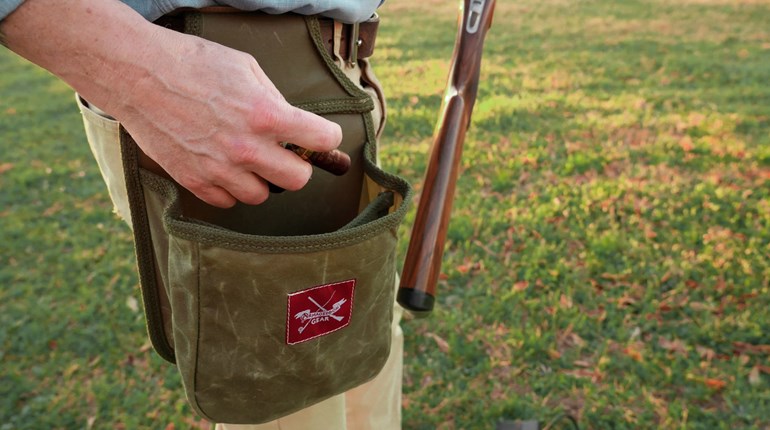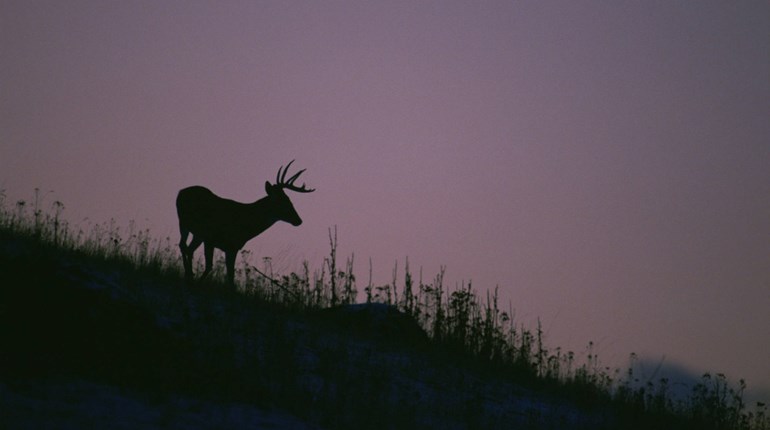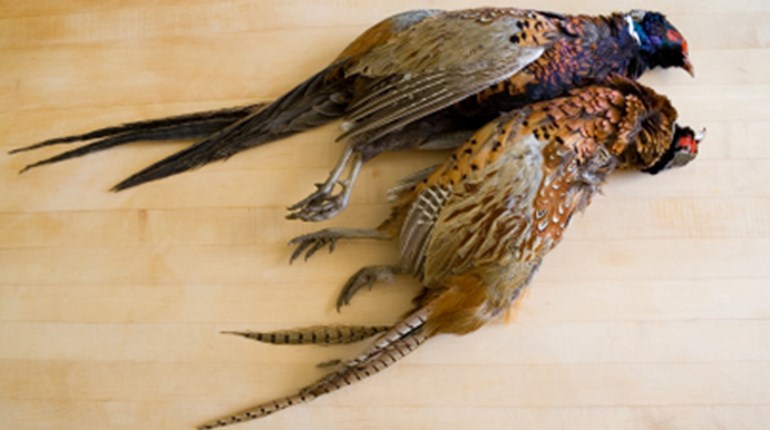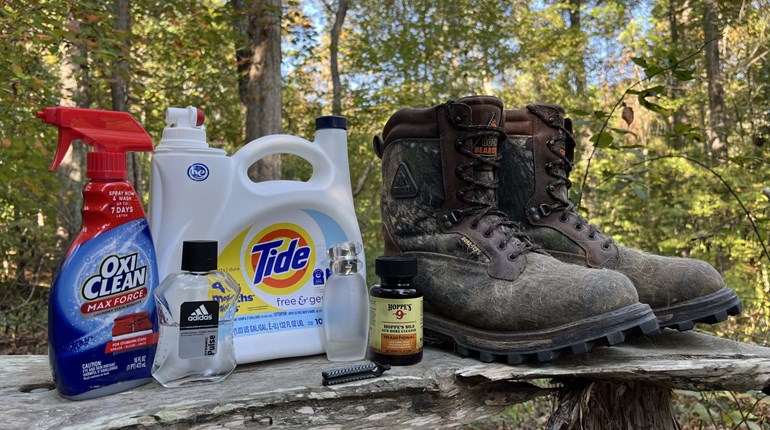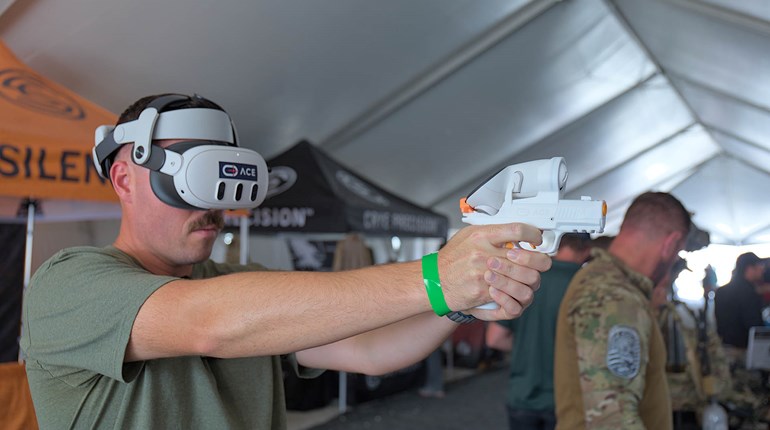
They don’t make for the most attractive trophies, nor are they particularly dangerous—unless gravity brings one crashing down on your head, anyway—and you’d be loathe to find them on any of your buddies’ bucket lists. They won’t raise the hairs on your neck with an early-morning bugle or send a shiver down your spine with a howl or flash of teeth. And though the snow goose does none of these things, it is undoubtedly, for those who have pursued it, some of the most challenging game to successfully hunt on this continent. Perhaps the most addicting, too, because when the snow-goosing is good, it’s nigh indescribable.
And that—alongside a strong sense of adventure and camaraderie—is what led Associate Editor Jon Draper and Web Managing Editor Shawn Skipper to sign on for a 1,500-mile road trip to Clark, S.D., where they spent a full week taking advantage of the state’s Light Goose Conservation Order. We’ll let the two of them tell the tale …
Skipper
No limits, no plugs and extended magazine tubes. Countless hours spent among good friends on the open road rather than at the mercy of flight attendants and pushy TSA agents. What could possibly go wrong?
So we rallied—five men and one very enthusiastic golden retriever—in Lewes, Del., the convoy’s official starting point. In two trucks stuffed full with guns, gear, food and ammunition sufficient to depopulate an entire flyway, we hit the road for a nine-day adventure.
If you’re going to hunt snow geese, you’ve got to be ready to get a little crazy.
Draper
Someone told me long ago that, as hunters, we must do our part to protect wildlife and their habitat. So it seemed fitting to shoulder unplugged, extended-tube conservation sticks to the sound of “Protect the tundra!” Of course, I wasn’t the one calling the shots, so “Kill ’em!” was going to have to be good enough.
Still, had I known the dog was going to get preferential seating on the drive to South Dakota, I may not have pushed so hard to join the hunt with the Skipper crew. But the idea of slaying snows during the liberal conservation season was too good to turn down. If Tank didn’t mind sharing the back seat of the F-150, I was sure I could manage the same.
Of course, Papa Skipper treats his dog like he’s worth his weight in gold (he might just be), so that meant the rear bench seat would be converted into Tank’s Lounge, complete with pillows and blankets, leaving me crammed into the small jump seat. Cozy, you could call it.
Some 23 hours later, with very little rotation in the truck, I’d gotten over my animosity toward Tank. How could you hold a grudge against such a good looking dog? And I’d even had a chance to get familiar with my somewhat (but not entirely) less furry companions.
 Skipper
Skipper
Draper never did quite quit complaining about having to share the back seat with the dog, but he seemed to get used to it. Probably the best-looking blonde he’s woken up next to in the last decade, at least.
For most of our cast of characters, though, the 24-hour drive was old hat. We’d hunted with the same outfitter in South Dakota the year before, and had driven cross-country then, too. When you’re carting along two truckloads of gear and a dog, it just makes more sense to drive. And you can’t beat the experiences offered by a good, old-fashioned road trip. What Draper didn’t know, though, was that we actually had more room between the two trucks than we’d been planning for.
As you may have surmised, my father, Pat Skipper, was our ringleader. A pair of his regular hunting buddies, Rick and George, were along for the ride, too. We’d lost our sixth member, Eddie, just days before we hit the road. He was a surprise scratch—especially since he’d been on the same trip with us the year prior.
It made more sense when I heard that the medical types back home diagnosed him with colitis. Poor guy. Just the thought of chasing snow geese again left him all bound up.
All told, though, the trip west gave us few problems. In between introducing Draper into the fold, we listened to college basketball on the radio—March Madness being in full swing—reminisced about past adventures in the many states we drove through and repeatedly challenged our bladders to hold out for just 20 more miles.
When we felt the need to tease ourselves, we’d steal a quick glance at the week’s impending weather forecast, or check in with the outfitter at Waterfowl Junkie Outdoors for updates. We’d heard some good things, and excitement was building. But we weren’t interested in just hearing about piles of light geese … we wanted to make them.
And so I remember, clear as day, when George captured our collective thoughts in a single sentence, uttered while waiting in line at a ratty gas station in Washington, Pa.
“I’m not doing this to smell the smoke; I wanna start the fire.”

Draper
When we finally reached Clark, things started happening fast. Sometimes too fast—reinforced, maybe, by karma. Nobody thinks about goose hunting as a “dangerous” activity. Until the second day of our hunt, I would have labeled myself as equally skeptical. But experience can change your tune. And while it’d be a stretch to say I just narrowly avoided the Reaper’s touch in South Dakota, I can say for certain that I avoided injury from both man and beast.
During a lull in the action, my companions shared the tale of Papa Skipper getting hit in the head by a falling snow goose back in 2013. Maybe it was bad form to laugh until I had to wipe the tears from my eyes. Maybe I should have been more respectful. And I absolutely shouldn’t have just jokingly questioned his dog’s ability, and in turn his own. But I’d killed a few geese and was feeling a little cocksure and, naturally, karma was winding up and taking aim. Apparently the hunting gods didn’t appreciate me asking where my downed bird was, as if Tank hadn’t done his job and retrieved it, and decided that the next group of snows was going to give the elder Skip a chance to shut me up, perhaps for good.
Since I had been calling “incoming” and “heads up” to protect my companions from falling birds all morning, you’d think I’d be quicker to adhere to my own advice. But then Big Skip dumped one directly above the pit—I still say he did it on purpose—so I hollered “heads up” once again and watched … until I had to dive out of the way as the 10-pound white bomb slammed into my corner of the blind. I stared in disbelief at the goose that almost got me as everyone else wiped tears from their eyes. Had I not gotten out of the way, I’d almost certainly have been knocked out.
Skipper
Personally, I think my coworker was sporting a death wish, given how long he sat out there and watched that bird fall straight toward his face. At the very least, he suffered from a severe lack of depth perception. I suppose no one ever said you have to be smarter than a goose to kill a goose. Regardless, the bird that nearly left a vacancy on the American Hunter staff was just one of the 42 we felled on the second day of our stay. And though 42 isn’t one of the awe-inspiring triple-digit figures that “great” snow goose hunts are known for, it wasn’t bad, either. How often are you presented with the chance to slay 42 birds in a day in the Lower 48?
All told, things were looking up. We’d taken 24 birds on our first day and 42 on the second. We weren’t necessarily starting a wildfire, as George had hoped, but we were, at the very least, working on a good controlled burn. The weather was relatively cooperative, though we’d heard that the light geese typically found in the flyway were migrating a bit farther to the east than usual. Still, we’d had action. Good action, at that.
And then, on the third day, God said there would be no more geese.
Well, it felt biblical, anyway.
Draper
Shawn’s being overly dramatic. They can’t all be winners. I was contemplating that very notion around 5 p.m. on the third and, to that point, slowest day of the hunt. And then we won.
I was burrowed deep in my layout, doing my best to avoid the 30-mph South Dakota gusts that ripped across the prairie and tore through the seams of the blind. Some folks might ask why we had even bothered returning to the same field where a measly 10 birds had been taken in the morning. I’d reply with a resounding, “Why not?” We hadn’t driven halfway across the country to put our feet up at the lodge.
The call of “High, 12 o’clock” brought everyone’s eyes to the sky. The pair of snows on a sea of blue sky was an awesome sight, and it infused our party with enough hope for noses to emerge from their warm hidey-holes—but only noses. We watched with muddled enthusiasm, accepting that the pair would pass out of range, like so many of their brethren had done earlier in the day. And then their halted wing beats signaled an oh-so-slight chance. Would they drop?
The term “rapid descent” comes to mind.
They came down fast, but alas, they overshot our position. As they glided lower, I twisted my head in an effort to work out their landing. But they didn’t commit just yet. The same South Dakota wind I had been cursing was about to do us a huge favor. It blew those two birds back into the 12 o’clock position at a mere 15 yards. Hunters rose, guns barked and two birds fell.
On his 12th and final retrieve of the day, Tank brought us back a shiny band.
Still winning.
Skipper
The band was admittedly a great way to end our hunt’s hump day. Though a dozen birds was certainly a slower pace than we’d grown used to, especially given the cold, biting wind, we had indeed won. We let Draper call in the band. Given that he’d boastfully claimed, oh, I’d say 50 of the 80-odd birds the group had killed through three days, he probably would have demanded credit for it anyway. It’s why my dad has christened him “Killer Draper,” or “KD” for short.
It was good, though, that we let him have it, because he really needed a pick-me-up after what happened on day four. The birds that had slowed down on Wednesday out and out turned off by Thursday. Fortunately, old KD was about to lift everyone’s spirits.
A lone blue goose had managed to land in the decoys about 35 or so yards from our pit. It wasn’t the first bird to pull a fast one on us and land in the dekes, but it was the first one that we weren’t able to summarily jump up and then shoot. So my dad sent Draper from the blind with orders to walk the goose up and then knock it out of the sky. Draper seemed confused by the concept from the get-go, which probably should have foreshadowed what happened next.
Not being one of the flock’s smarter birds, I’d wager the goose in question let Draper get within 7 or 8 yards before it took to the sky. And so KD brought his Benelli Ethos to bear and let ’er rip.
And then he shot again. And again. And then he cursed, before shooting a fourth and final time.
And then the goose left.
Or at least it started to. My dad rose from the pit and smoked it at about 60 yards, going away, before putting down his shotgun and doubling over with laughter.
Draper
Who “walks up” a bird? I mean, seriously? Dumbest thing I’ve ever heard. If they land in the decoys, you’ve done your job and earned the right to shoot them, right then and there! “Walk up” a bird. What a bunch of hogwash.
 Skipper
Skipper
For the record, I later relayed the story to one of the marketing guys with Federal Premium, who tried to cut Draper a little slack. At that close range, he said, the FliteControl wads on the Black Cloud shotshells we were using would have produced a pattern the size of a baseball, at most. Which would have served as a fine excuse, except for the fact that my 9-year-old stepsister could have killed that goose with an actual hardball from where KD was standing. The man had swung and missed, four times at that. A sight to behold, I tell you. I just wish Forrest the photographer had stayed an extra day to get it all on record.
Ol’ KD scurried off behind the pit to use the restroom a little while later. Had he not come back, I wouldn’t have blamed him.
Draper
Wait, no photos? How convienient. I believe the saying is, “pictures or it didn’t happen,” Skipper.
Skipper
Ultimately, the Miss Heard ’Round the World made for some much-needed levity over our final two days. The geese were no longer cooperating, and our kill count dropped to single digits on Thursday and Friday both. When the sun dipped below the horizon and we headed for camp on that last evening, we were spent. But we weren’t quitters. One last dinner and an evening of repacking the truck awaited us. We’d be just shy of 100 light geese heavy for the ride home, though. We’d rest easy.
Draper
Hour 18 was by far the worst, and we still had around 10 hours to go. But I made it to the gas station around midnight, after a four-hour stint behind the wheel. We stopped to refuel the trucks somewhere outside Columbus, Ohio. I chose to forgo the caffeine in favor of water and cold meds, folded the jump seat and curled up in the back next to Tank for the final push home. Though reluctant, he allowed it. I’d finally earned my place in the group.
I received the band report from the bird we shot a few weeks after returning home. Turns out “she” was banded on July 23, 2012, near her breeding grounds north of the Hudson Bay in Prairie Point, Nunavut, Canada. That’s more than 1,400 miles (as the goose flies) from where she was shot in Clark. She was at least a year old at the time of banding, which means she was at least four when we killed her. Assuming she flew as far south as Texas or Mexico every winter, the simple math says she flew more than 22,000 miles in her lifetime—and that’s a low-ball estimate. Looking at those numbers, I’d say I can make my own 1,500-mile trip at least one more time. After all, we must protect the tundra.
Skipper
As our truck lumbered toward Lewes, there was time to reflect. We’d traveled thousands of miles, endured far too much gas station coffee and spent enough time in a truck seat or layout blind to ensure a future trip to the chiropractor—but we’d do it all again. Like I said, when snow goose hunting is good, it’s great. And given the chance to extend your season by months, what kind of waterfowl hunter could possibly say no?
Well, most of us would go again. When we finally made it home, George climbed out of the truck and said his farewells to my dad.
“Skip, thanks for inviting me. If you ever do it again, I’m going to punch you in the nose.”
Spring snow goosin’ in a nutshell, folks.
Waterfowl Junkie Outdoors
To book your own spring snow goose hunt with Waterfowl Junkie Outdoors, click here or call 651-230-4935.













